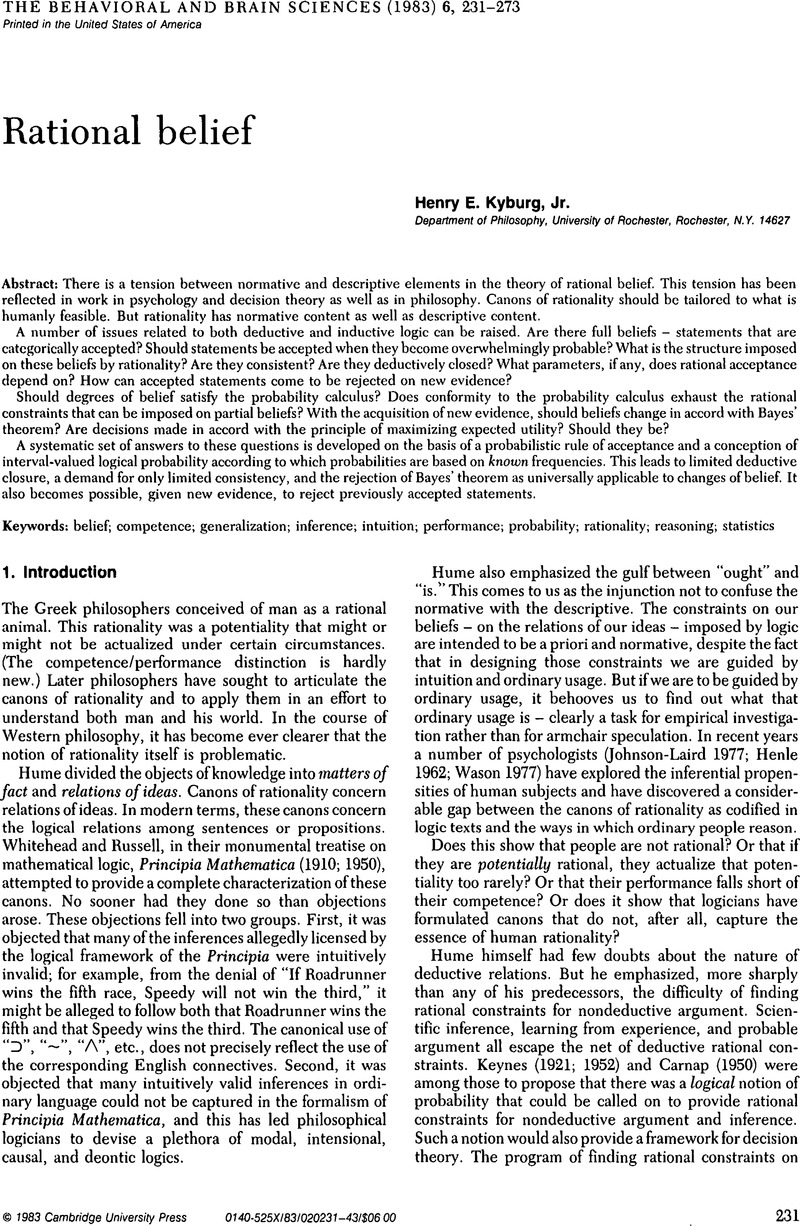Crossref Citations
This article has been cited by the following publications. This list is generated based on data provided by Crossref.
Johnson-Laird, P.N.
and
Bara, Bruno G.
1984.
Logical expertise as a cause of error: A reply to Boolos.
Cognition,
Vol. 17,
Issue. 2,
p.
183.
Quelhas, Ana Cristina
Rasga, Célia
and
Johnson‐Laird, P. N.
2024.
Reasoning From Quantified Modal Premises.
Cognitive Science,
Vol. 48,
Issue. 8,



